Notes Cultural Diversity:
a textual + visual archive - Denzel Veerkamp
, that zooms in how to dismantle the master’s house and its material edifices and ideological architecture. All of this to realize a reality that enables the construction of abolitionist futures in the present. Exploring how can fugitive forms of organising and thinking can continue to confront white feminism, racial capitalism, the violent gender binary and the carceral state. Audre Lorde (also known as Sister Outsider) who stood up to oppression of black lesbians and stated that “The master’s tool will never dismantle the master’s house”. Also in 1984 she noted that hegemonic, stratified forms of feminism can also constitute the master’s house.
- Abolitionist feminism refers to an ideology or framework of being actively against slavery and actively feminist.
- “What the world will become already exists in fragments and pieces, experiments and possibilities,” is a quote from Ruth Gilmore which they further explaned as that the future of black feminism and the world is now and that theres no blueprints for that future but that it’s all about making the problematic systems obsolete. The past drives our spirit, the future can be something we can’t even imagine. Black feminism imagines a world that does not yet exist, of a less exhausted world, outside the borders of todays standards.
- The masters house is built on fear and questioning, can the tools be dismantled?, that’s what this talk was really about.
- A reference of Tina Campts was brought up about her book ‘listening to images (2017)’, which is about engaging with lost archives and dissecting photographs of of black subjects taken throughout the African diaspora all kinds of different photos but the thing they have in common is that they were taken with the intention to dehumanize, police, and restrict their subjects, these photographs convey the tension and the tools of colonialism, resistance and subversion. Even her way of working, with the dissecting and slowing down of the image, goes against the nominal categorist capitalists way of perceiving things.
- Something that was being discussed was that we have to move towards a future without prisons, which made me then think of the Norwegian criminal justice system, where focus lies on the principles of restorative justice and the rehabilitation of prisoners.
- Several interesting names were mentioned. For instance the name of Barbara Smith who is an American lesbian feminist and socialist who has played a significant role in Black feminism in the United States. The name of Angela Davis, who is an American political activist, philosopher, academic and author. She is the author of over ten books on class, feminism, race, and the US prison system. Another name was Ruth Gilmore who is a prison abolitionist and prison scholar who has been credited with inventing carceral geography, the study of the interrelationships across space, institutions and political economy that shape and define modern incarceration.
- A nice reference to me also was the movement of going against the sole radiobroadcaster BBC in the 1980’s of London underground/pirate black radio uprising.
- The clash between students of color and institutions is a declaration of black presence. If there’s no clash between a student of color and the institution it must’ve been because you weren’t as black as the other students. Very interesting part of the conversation to hear for me.
- Also they talked about freedom from racial capitalism.
The aspect of the conversation that it was foremost future forward thinking, solution-orientated thinking, semi-speculative and about dissecting systems is what I liked most about it.
Words to translate:
Abolitionist feminism – an ideology or framework of being actively against slavery and actively feminist.
Concurrently – at the same time.
Assemblages – associations, unions, clubs, combinations, gatherings.
Fugitivity – quickness within things.
Hegemonic – directive
Quotidian -
THE MASTER’S TOOLS WILL NEVER DISMANTLE THE MASTER’S HOUSE – ABOLITIONIST FEMIMIST FUTURES
IS A CONVERSATION BETWEEN BLACK FEMINIST FOREBEARS GAIL LEWIS, MISS MAJOR, ZOÉ SAMUDZI, HORTENSE SPILLERS & AKWUGO EMEJULU
6/09/2021 - Audio assignemnt (notes)
Spiritfirst: Akwaeke Emezi with Sadiya Hartman:
- Imagination of our collective freedom
- Putting on faces
- Some days things aren’t relevant
- Dealing with embodiment
- Decentering of the human protagonist
- Freshwater: very young spiritually, self-exploring, abandoning the reality she was currently in.
- Finding a way for the western reader to comprehend her story.
- Two parallel tracks of language that are happening in her existance.
- Everything doesn’t have to be exactly the same before white people found us, it can also be in a contemporary sense.
- Feeling is the highest form of knowing – from the comment section.
- A larger framework of questions relate back to concepts such as your Chi, your will in life, things that aren’t necessarily common in the modern western world.
- People should be willing to move their minds in a different headspace and try to engage with Emezi’s reality themselves, she isn’t trying to convince anybody.
- Leadership that’s not structured by white or even human gaze
Words to translate:
Metaphysics
Retrospective
Egoreality
Memoir
Protagonist
Pushing back on taxonomy
Main topics of interest - 19/09/2021
Identity:
- Multi-racial background growing up in a dominantly white
country, what does it do to you?
- 'De-blackening of oneself to be accepted.
- Hybrid identities - celebrating uniqueness of the self.
- Framing of stereotypes - How does it work and why do we
do it? Is there anything positive about it?
- Cultural archive.
Disrupting hierarchies of knowledge:
- White / Eurocentralistic thinking / design.
- Disrupting/exposing systems: Toxic ways within fashion
industry, capitalism and it's toxic ways, genderroles, toxic
masculinity, norms, standards, body memory etc.
- Migration (-'crisis') and it's origins. white oppression of
the orient/south.
Notes toward a Politics of Location (1984) - Adrienne Rich
6/09/2021 - Audio assignemnt (notes)
16/09/2021 - Notes from reading assignement - Julie Bosschat
- 'I came here with notes but without absolute conclusion' - being aware that definitiveness and boxed thinking will result in more/other issues is very important.
- 'Locating these grounds (...) authority AS women' - Reclaiming the location of the female body as a position which radiates power and authority.
- 'We believed (I go on to believe (...) place of location' - Utopian vision of a future free from (gender) oppression, 'returning back to earth' as a metaphore that suggeststo abandon all 'man made' resctricting systems etc.
- 'I wrote in 1975 (...) each others' errors' - Sharp analysis of the characteristics of politics! Why? How do we start tackling this?
- 'The power men (...) among us all' - The idea that a pattern of toxic thinking will always lead towards more forms of distructiveness, laid out flawlessly.
- 'Patriarchy as the 'model' for other forms of domination.
- "I could physically (...) to the South" - A very imenent presence of threat and a territorial, arrogant, careless nation that is no way any more sacred than it's enemies, but likes to portray itrself as the example of freedom and equality; the USA.
- "An approach which (...) generation after generation?" - It's all backed up by media and really just conservatist capitalism in general. (?)
- "The movement for (...) be the same" - The movement for change = demasculizing, de-Westernizing, striving for uniqueness and own identities.
- "Not in debate (...) simultaneous oppression" - REcognizing the destructive 'masters' house' (NTS abolitionist feminist futures).
- In my whit (...) be taken seriously" - Maintaining of oppression of black people throughout communities and generations.
- "This is not an ending" - Again emphasizing that her vision is not the answer.
Introduction: Carelessness Reigns from The Care Manifesto - The Politics of Interdependence - The Care Collective
20/09/2021 - Notes from reading assignement - Julie Bosschat
- "Our world is one in which carelessness reigns." - First sentence immediatley very strong, clear and enganging for me.
- "promoted through a ballooning 'self-care' industry which relegates care to something we are supposed to buy for ourselves on a personal basis." - Some aspect that bothers me almost the most of neoliberist capitalism.
-The crisis of care has become particularly acute over the last forty years, as governments accepted neoliberal capitalism's near-ubitquitous positioning of profitmaking as the organising principle of life. It has meant systematically prioritising the interests and flows of financial capital, while ruthlessly dismantling welfare states and democratic processes and institutions." - The systems of care that were implemented after WOII have been broken down systematically, and degraded intentionally by neolibarist governments.
- 'Neoliberalism, in other words, has neither an effective practice of, nor a vocabulary for, care."
- "a systemic level of banality permeates our evryday carelessness. Hearing about catastrophes such as vast numbers of drowned refugees, or the ever-expanding homelessness in our streets, has become routine."
- "A global neoliberal economy that places profit over people, and is dependent on the endless extraction and burning of fossil fuels, has caused environmental destruction on an unprecedented scale. The world, as Naomi Klein has recently written, is on fire."
- "Wizz Air cares that we carry on flying but with less guilt". , "Such forms of what we might call carewashing join a rich array of corporations trying to increase their legitamicy by presenting themselves as socially responsible 'citizens', while really contributing to inequality and ecological destrcution. They go further by trying to capitalise on the very care crisis they have helped to create."
- "With no effective government control over the giant companies it hires, this 'shadow state' takes advantage of the actual state." (the people living in it)
- "There are fewer places for people to congregate, whether for relaxation and enjoyment, or to discuss issues of common concern or participate in collaborative projects. This heightens the competive individualism that so often leads to loneliness and isolation, while having devastating repercussions for our ability to participate in democratic decision-making.", "Moreover, careless communities focus on investing in policing and surveillance rather than social provisions to promote human flourishing."
- "'Really not caring' is presented by the right as a form of 'realism'." , Prioritising and working towards a sense of universal care - and making this common sense - is necessary for the cultivation of a caring politics, fulfilling lives , and a sustainable world."
- "Historically and to this day there is pressure on men to display a distinct and authoritative manhood, stoked in recent times by a wounded, sexist backlash to feminism."
- "A caring politics must grasp both this interdepence and the ambivalence and anxiety it inevitably generates.", "Recognising our needs both to give and to receive care not only provide us with a sense of our common humanity, but enables us to confront our shared fears of human frailty, rather than project them onto those we label as 'dependent'."
- "Roseneil argues at the end of her study that 'the friend'could easily replace 'the mother' as the archetypal figure in our caring imaginaries, and that 'networks and flows of intimacy and care' should replace the family as the prime relational unit".
- "Kinship is not tied only to blood or family but extends to the land, water, and the animals on whom we depend for livelihood. For the Water Protectors at Standing Rock, resistance to the Dakota Pipeline was precisely about protecting a relative, Mni Sose (the Missouri River).", "Such relationships are fundamental to devolping a politics of care, from the most intimate kinships to the planetary scale."
- To me all this theory describes the worlds most urgent current crisises flawlessly and the solutions it presents will be the first steps necessary for universal care and a world freed from it's man made borders.
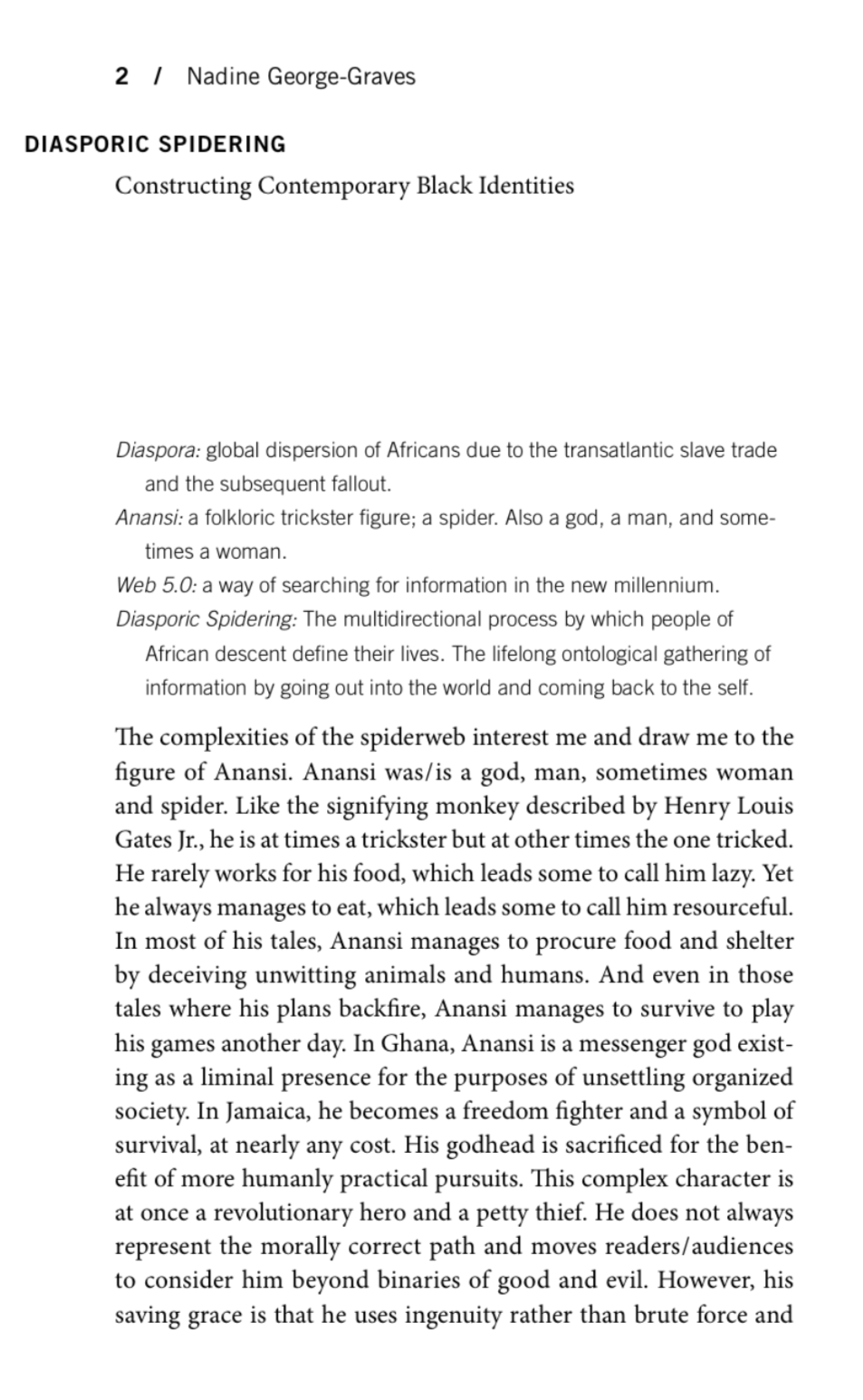
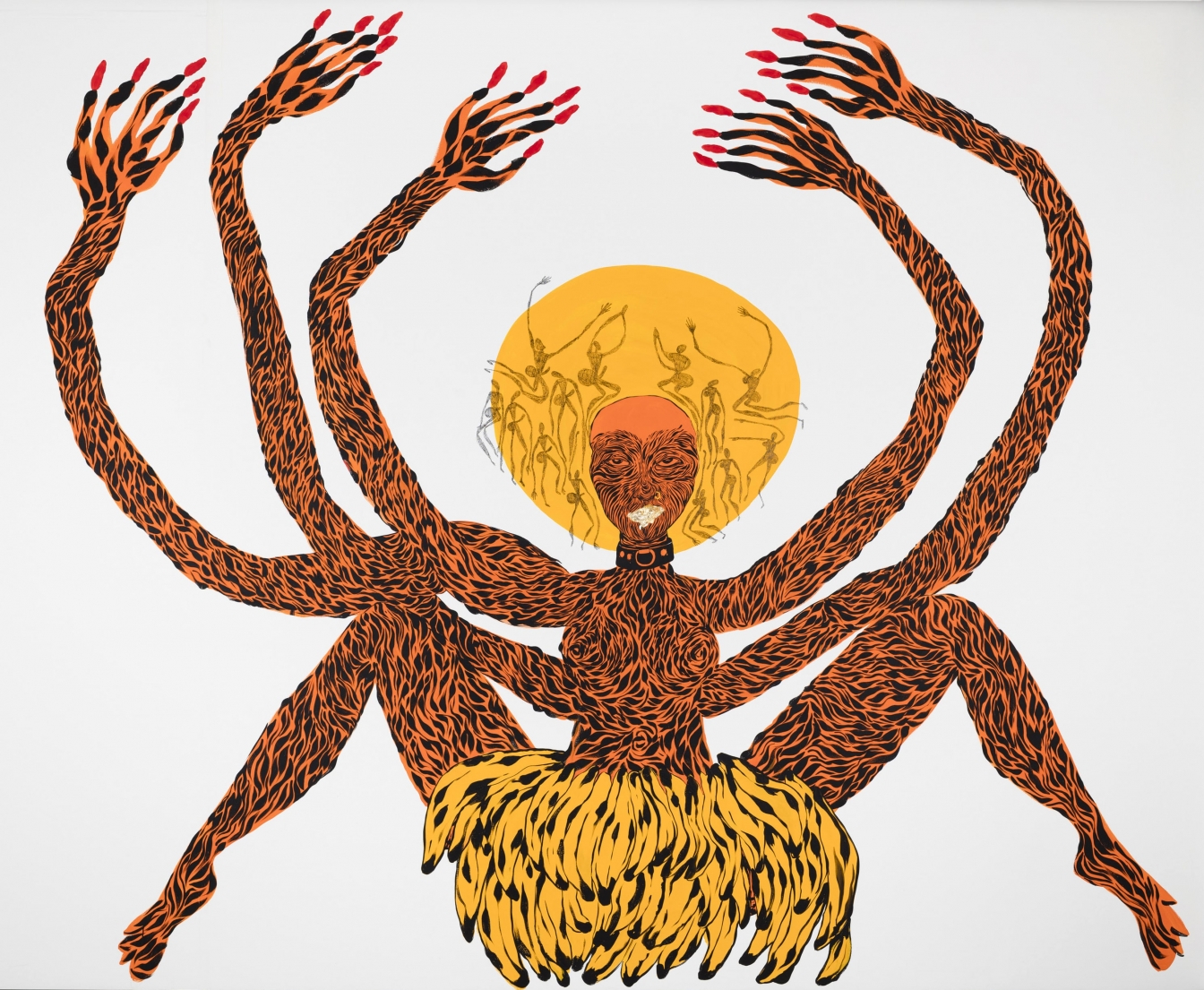
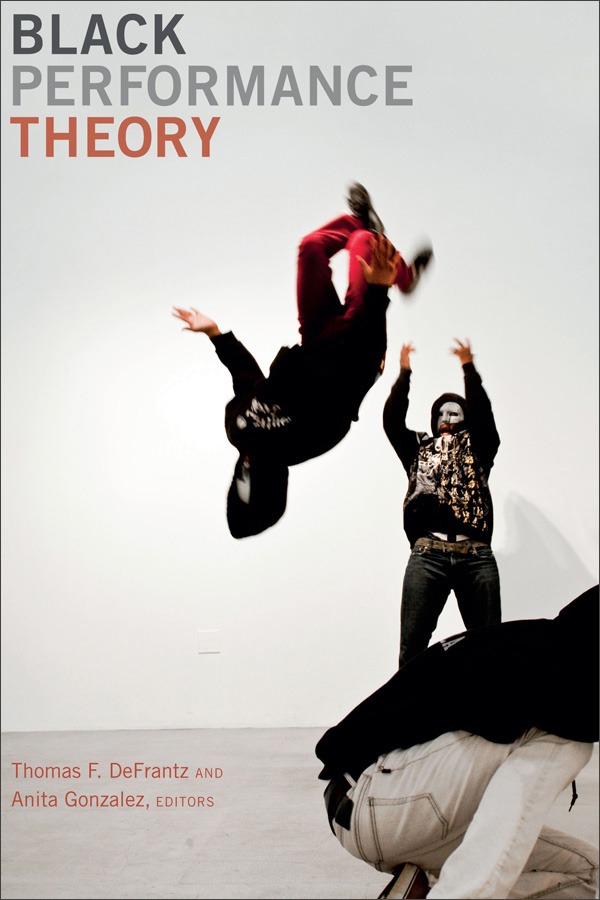

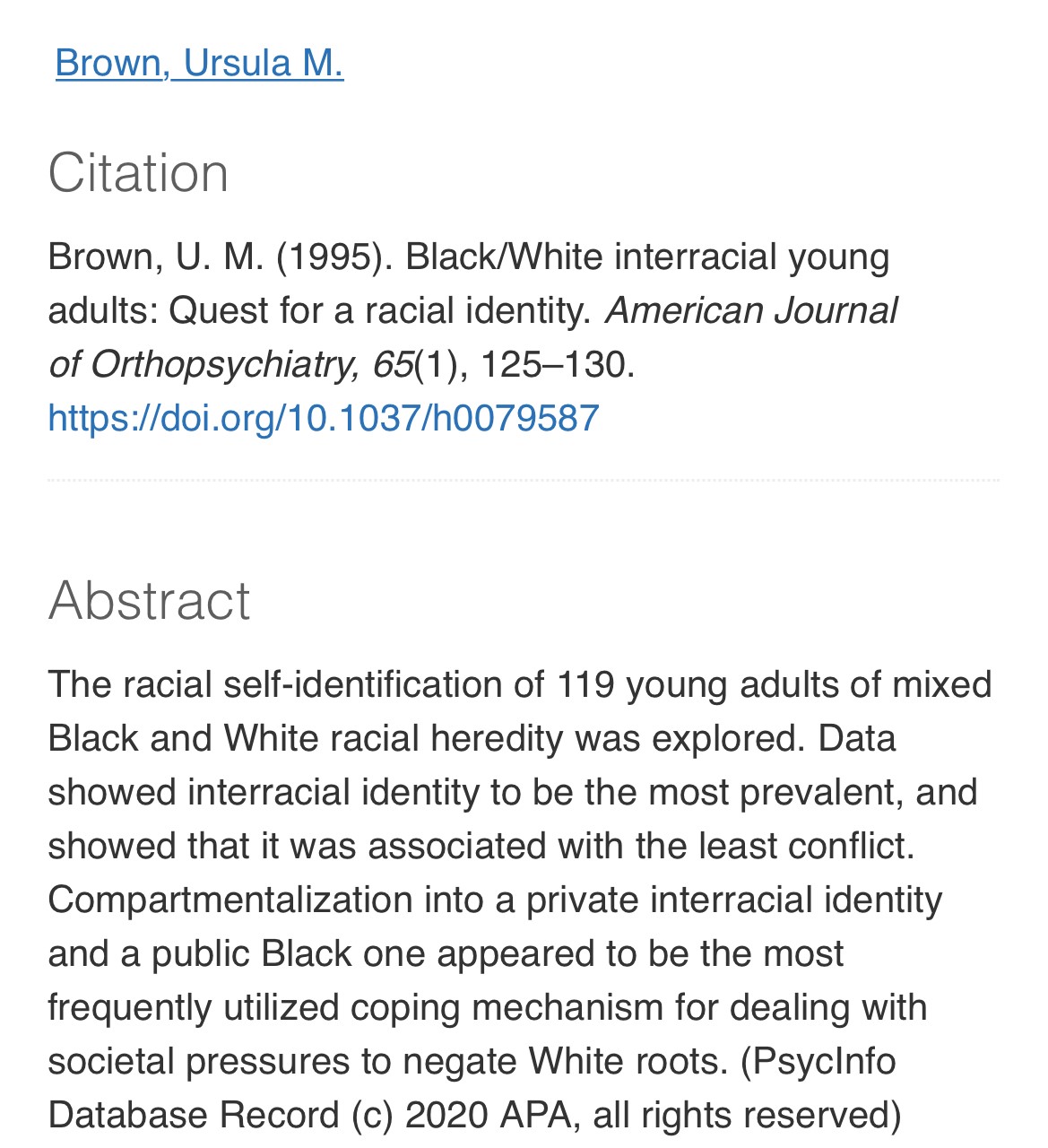
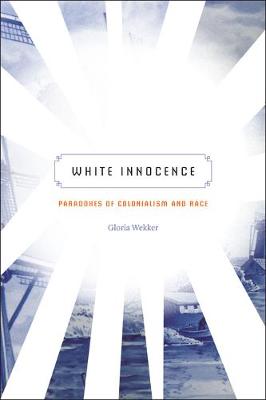
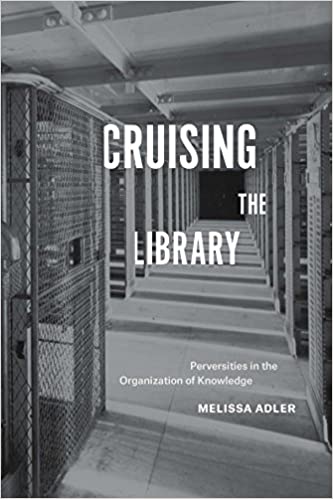
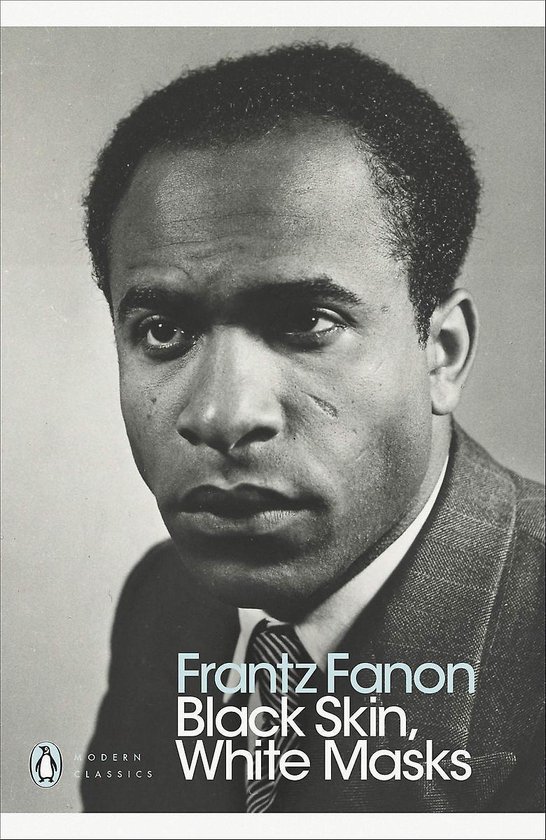
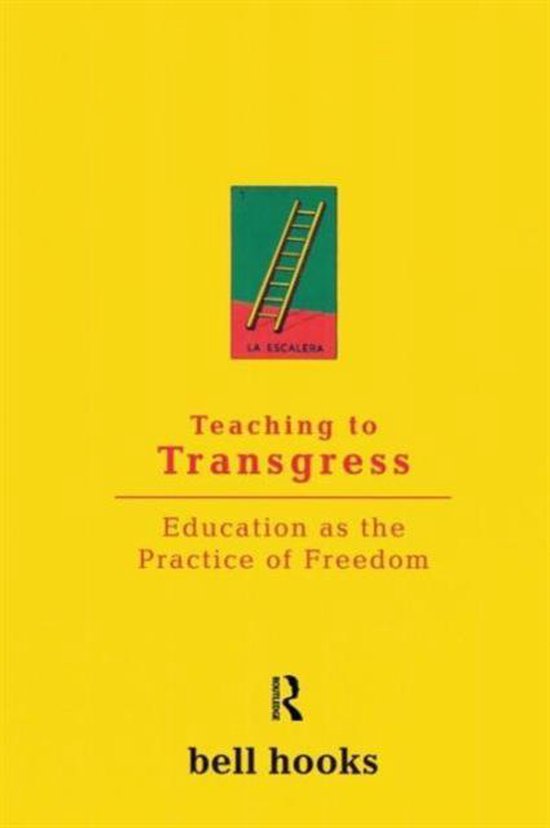
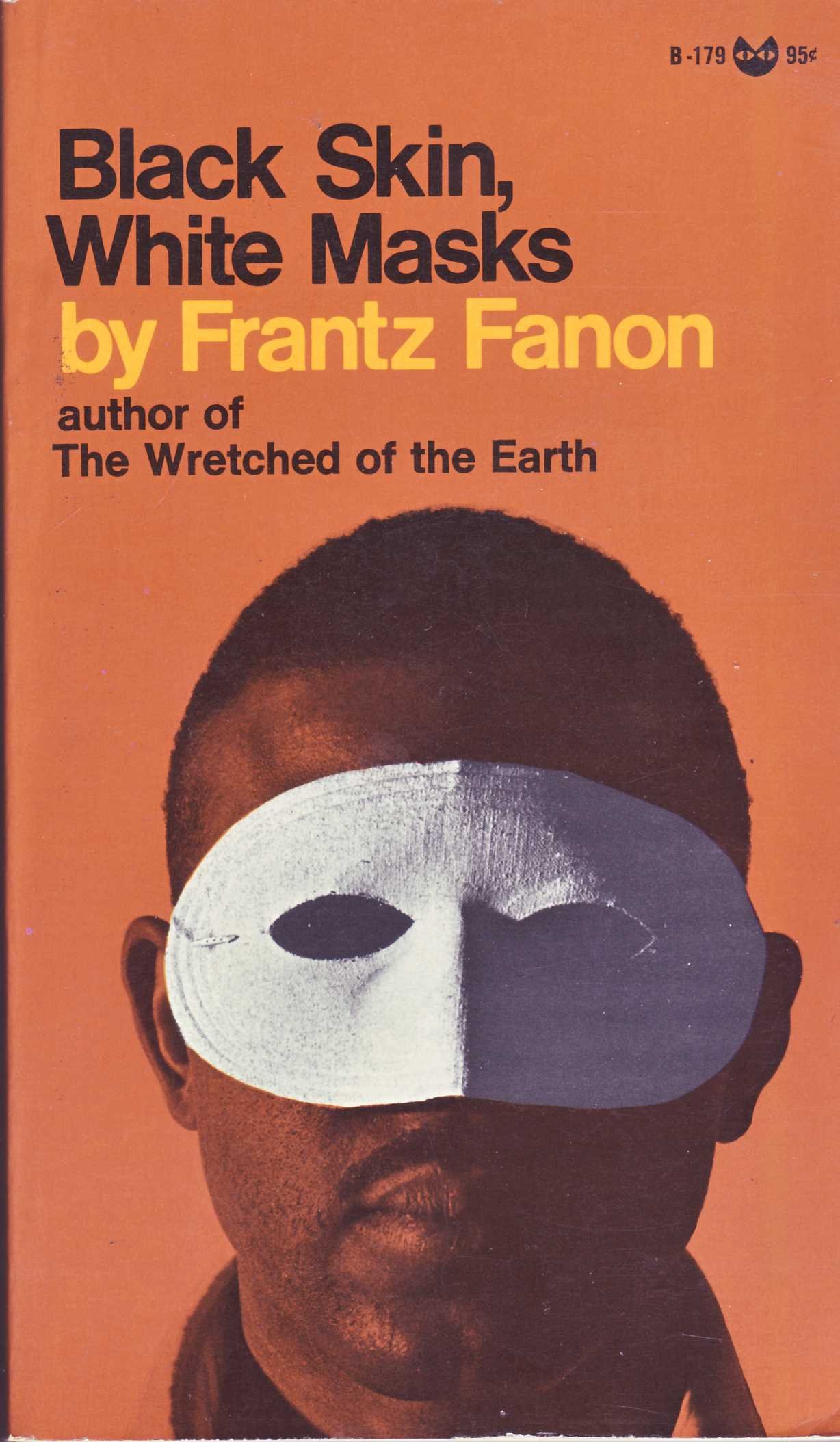
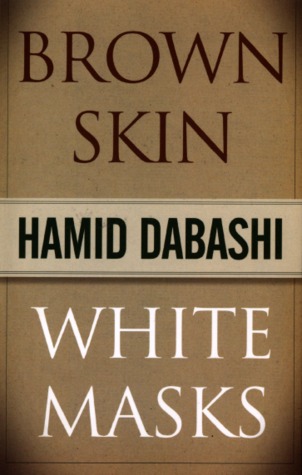
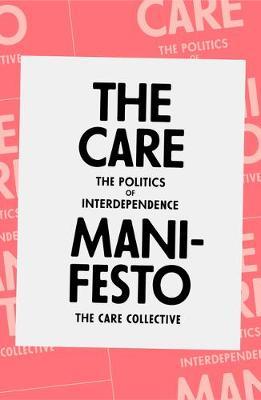

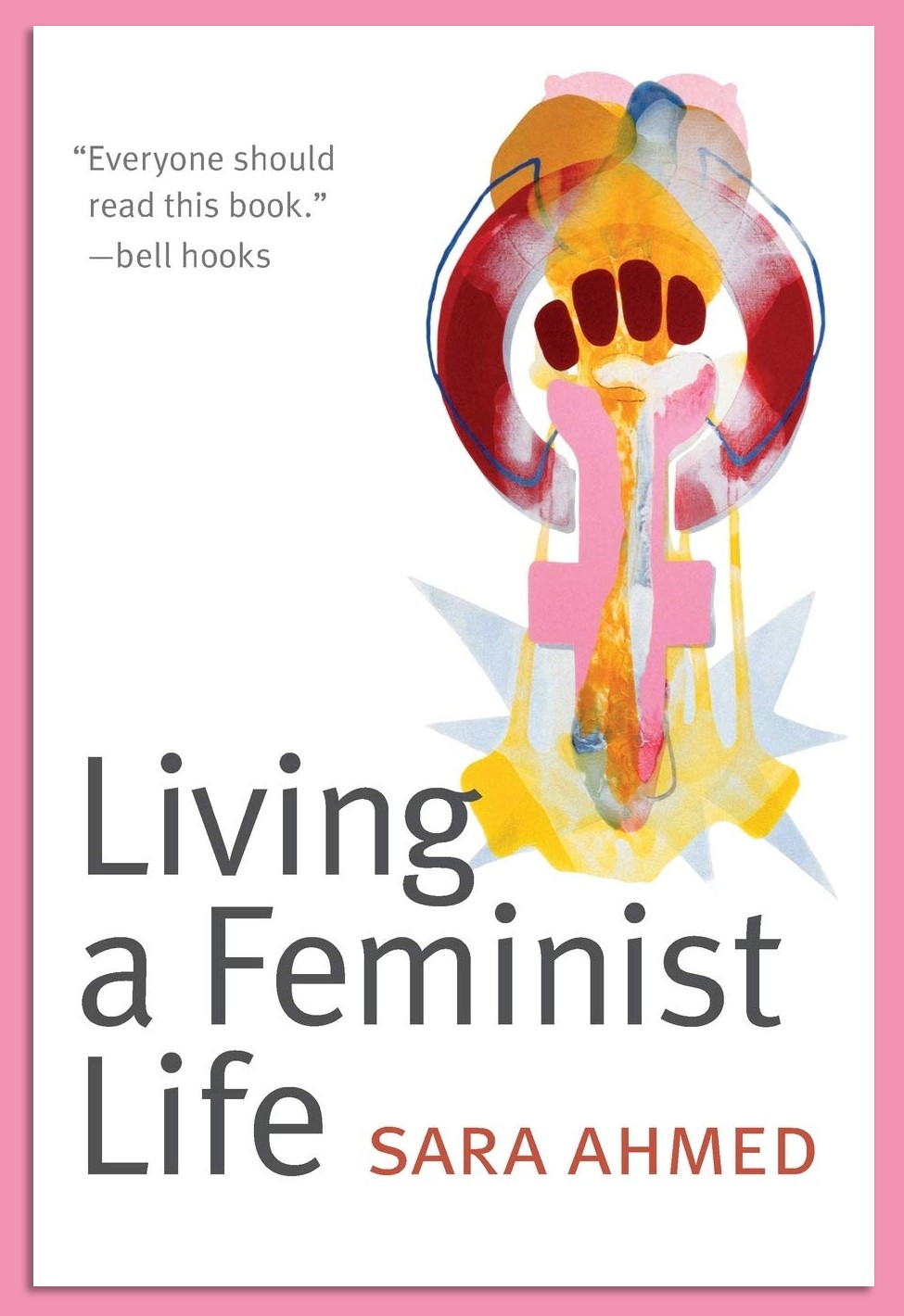
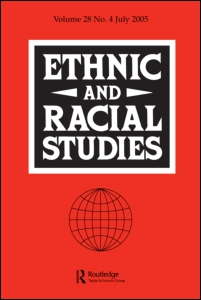
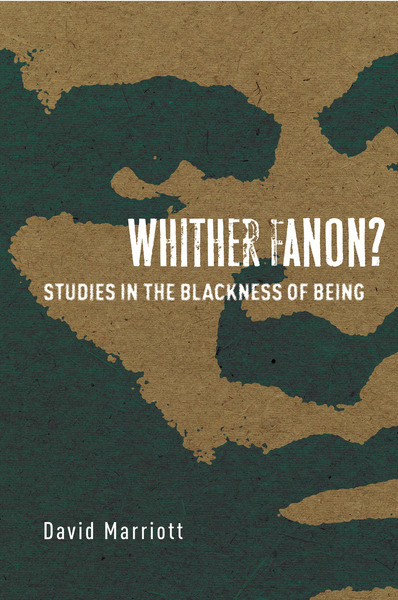
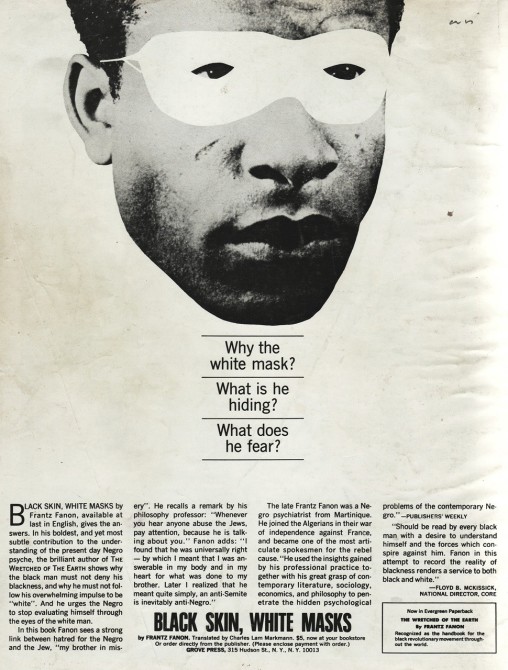
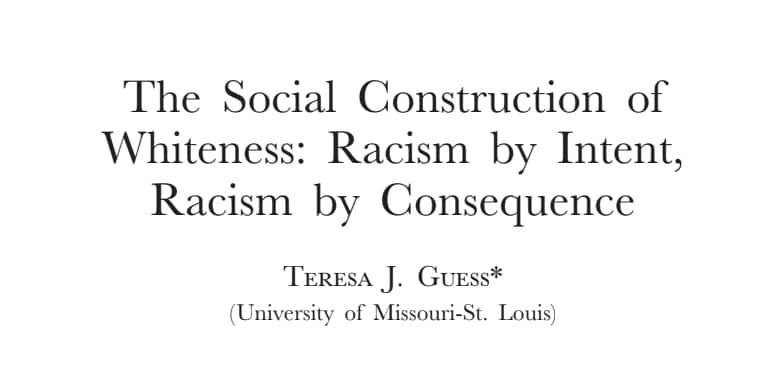
White Innocence - Gloria Wekker (2016)
10/10/2021 - Notes from reading assignement - Teana Boston-Mammah
White Innocence - Gloria Wekker (2016)
10/10/2021 - Notes from reading assignement - Teana Boston-Mammah
Notes toward a Politics of Location (1984) - Adrienne Rich
16/09/2021 - Notes from reading assignement - Julie Bosschat
Main topics: 10/10/2021
- Striving to understand (my) modern day (whitened) blackness and perhaps speculate/fantasize about new black identities.
- Forming of identity when having a multi-racial background (growing up in a dominantly white culture).
- 'De-blackening' of the self in order to be accepted, conforming to the dominantly white (and male, neoliberal, capitalist, etc.) toxic systems of oppression. Justifying the changes of the self in order to 'survive'.
- Framing of stereotypes.
- Looking for a sense of belonging/a tribe. What do you do if you feel refused by the dominantly white society because of the color of your skin but also feel that you are not black enough within black communities?
Research questions: (for interviews/talks)
- What possible "personalities" would you give yourself? (IT-nerd, rockstar, activist, bio-mom, dock-worker, hippie etc.)
- What group do you feel you really belong to? (Surinamese community, biker culture, Feyenoord harde kern, petten surf community, kickboxing gym, queer community etc.)
- Do you feel that the color of your skintone defines you?
- Do you feel truly black?
- Do you feel white?
- How many times you feel you can't be your relaxed self and have to conform to a system or to peoples expectations? How much do you fight those feelings and how does it make you feel?
- When do you put on a 'white mask'?
- How do you look at other cultures rather than your 'own'? Do you have any prejudices over them?
- Do you have any prejudices over people that you feel that look like you? Do you sometimes wish not to be associated with them?
- Are you a soccer fan and do you support a club? Can you explain why it is exactly you feel associated white this tribe?
- Have you noticed the racism and double standards often showed by supporters of glorifying coloured players who do good and namecalling of coloured players who play less good? How do you feel about this?
More (academic) references
Collages I made as a personal outlet while processing all this theory
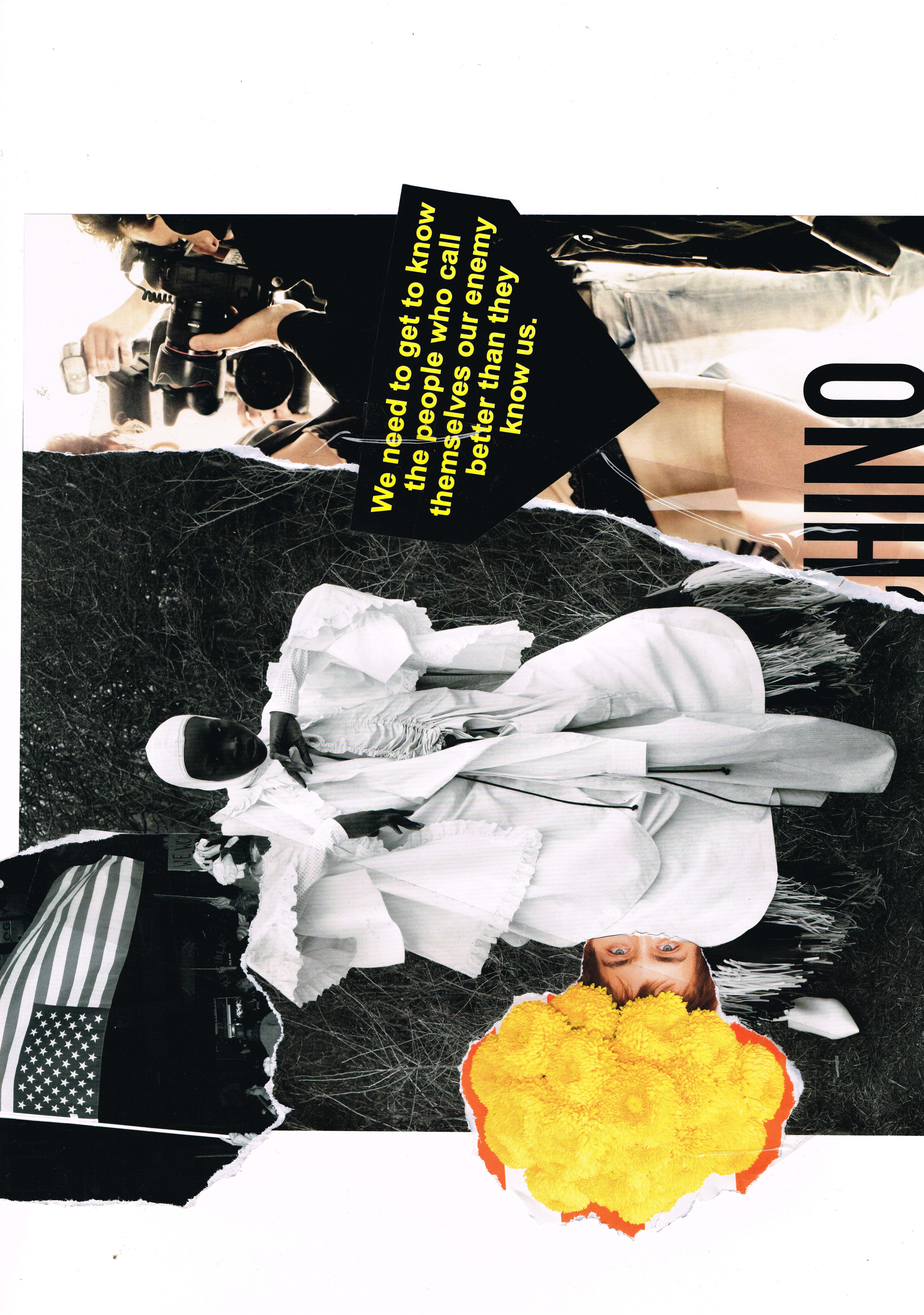
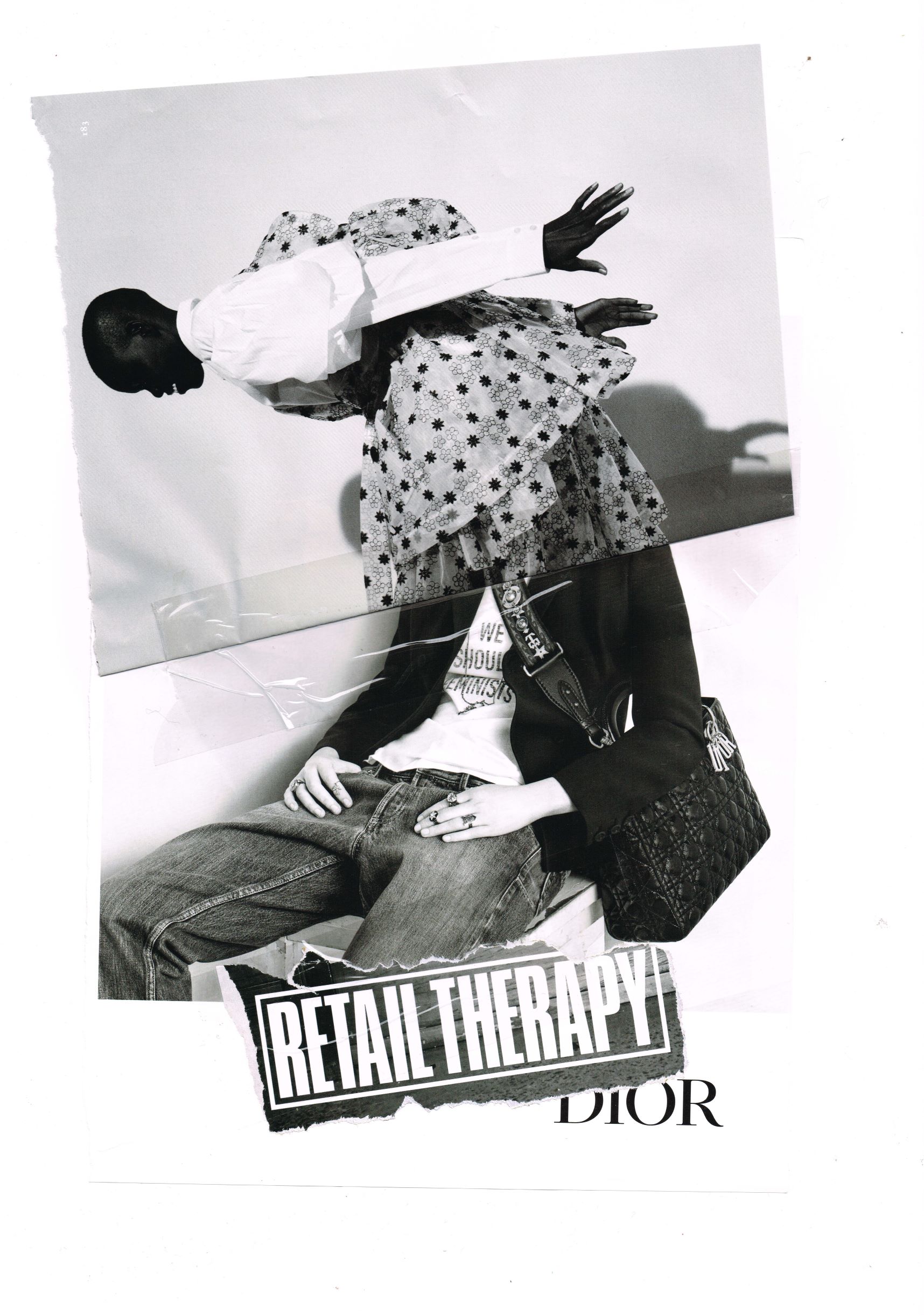
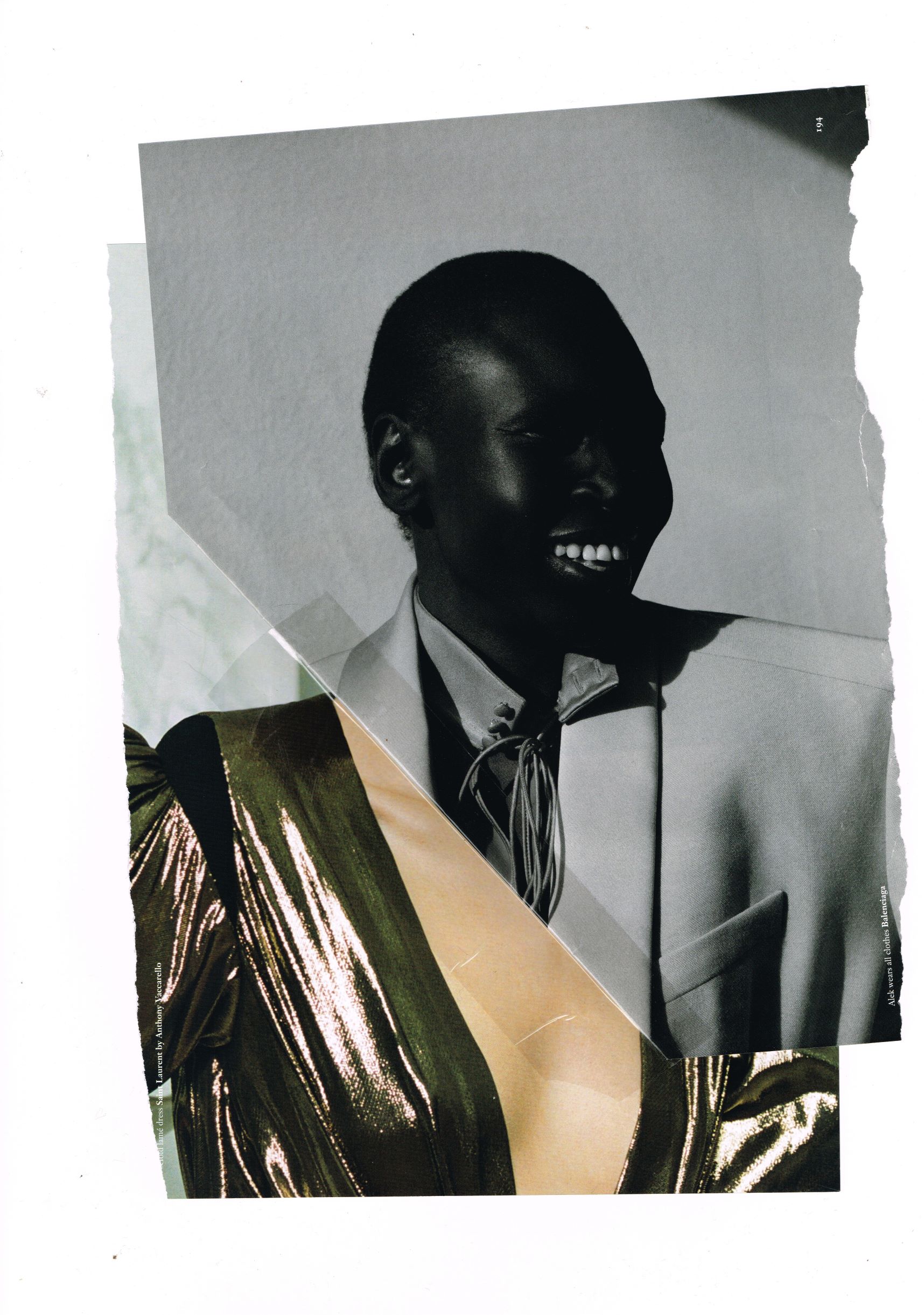
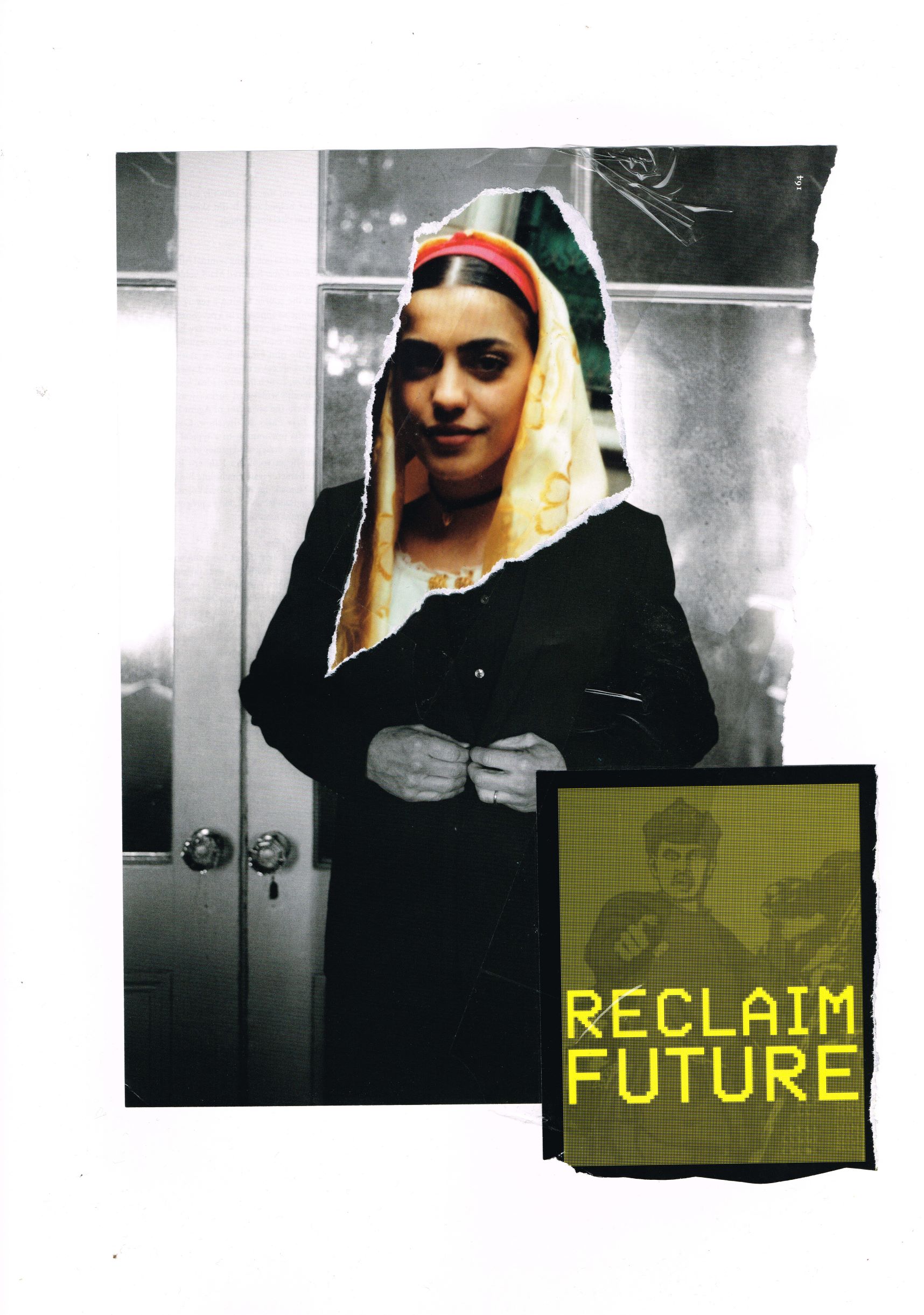
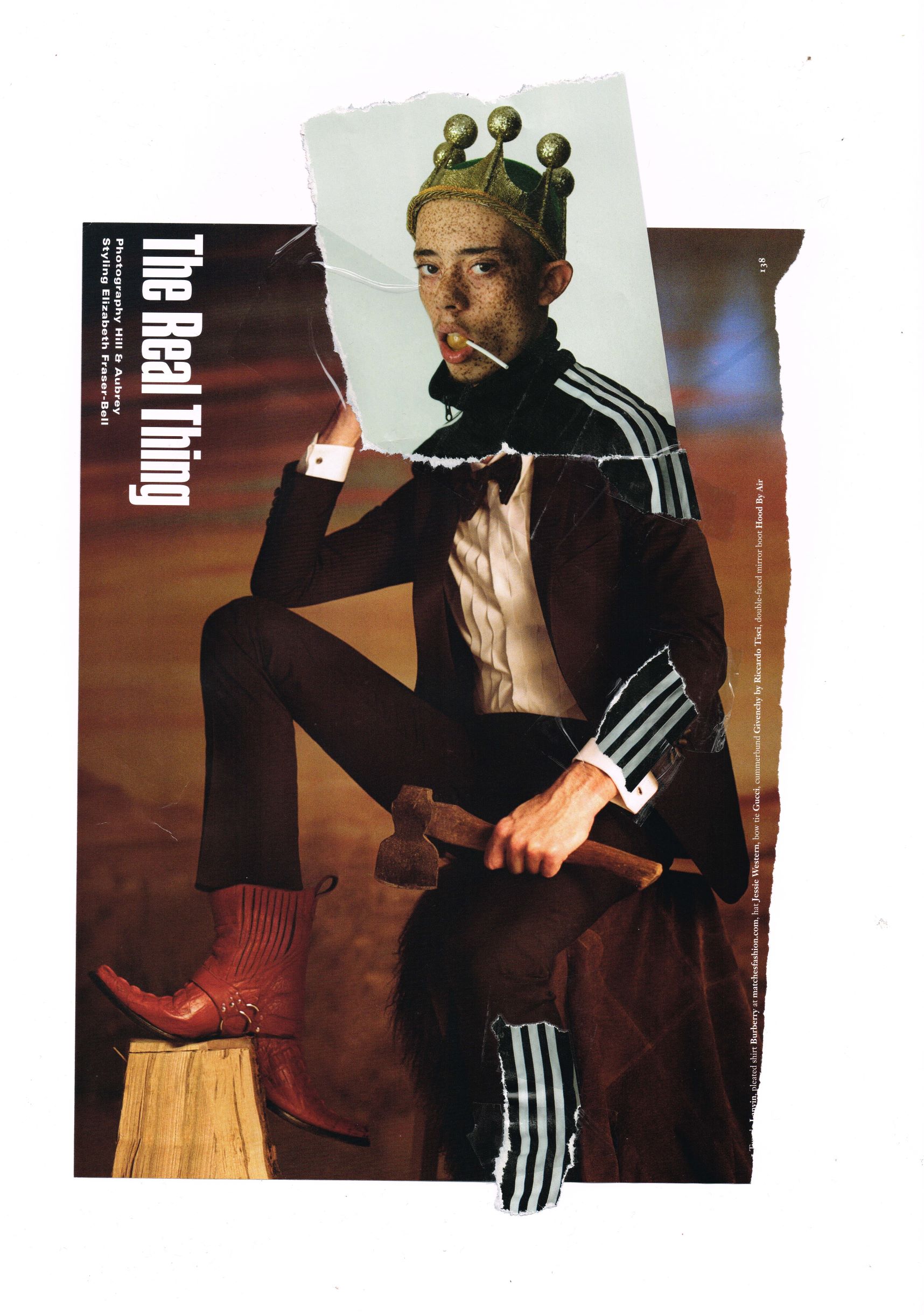
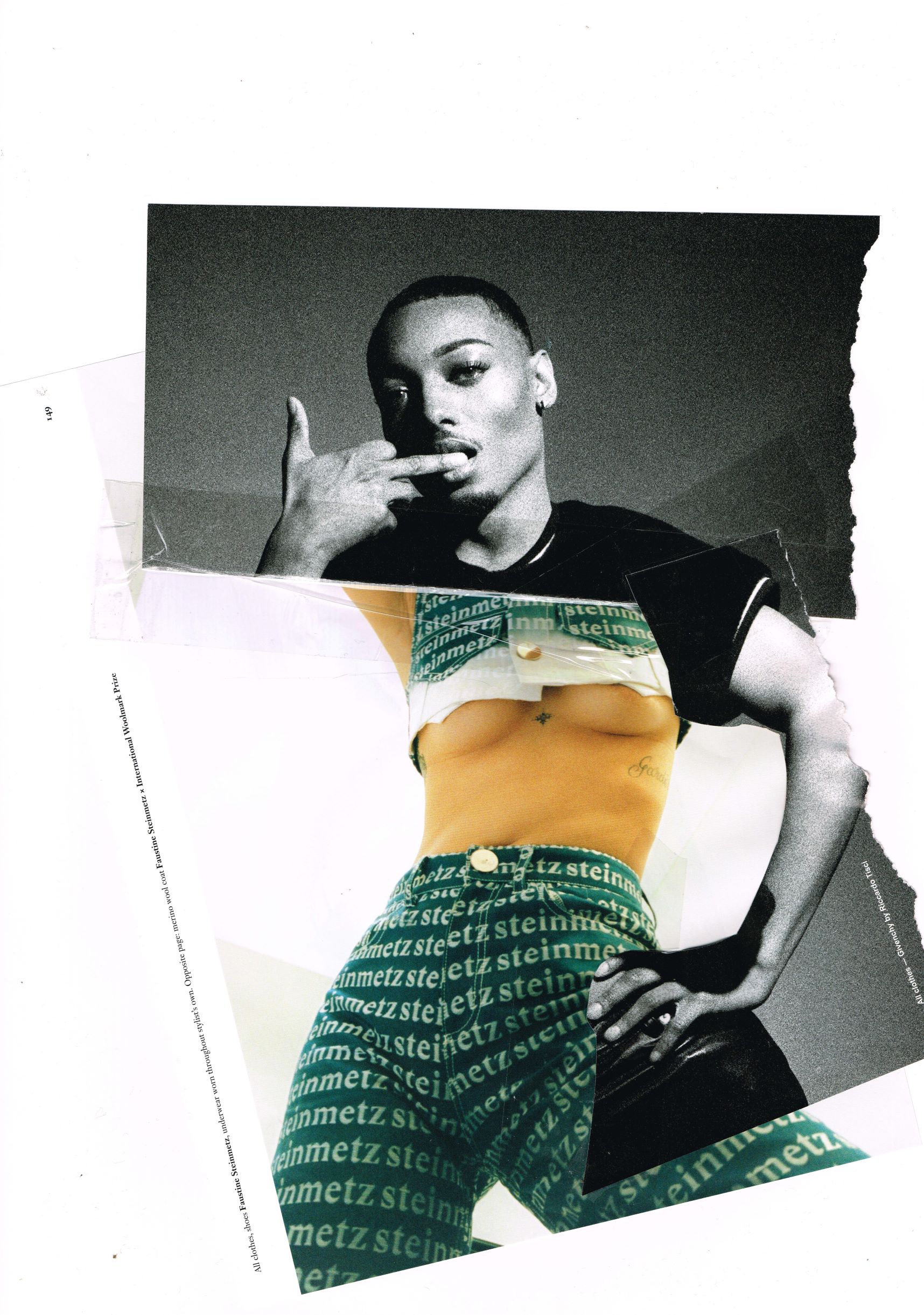
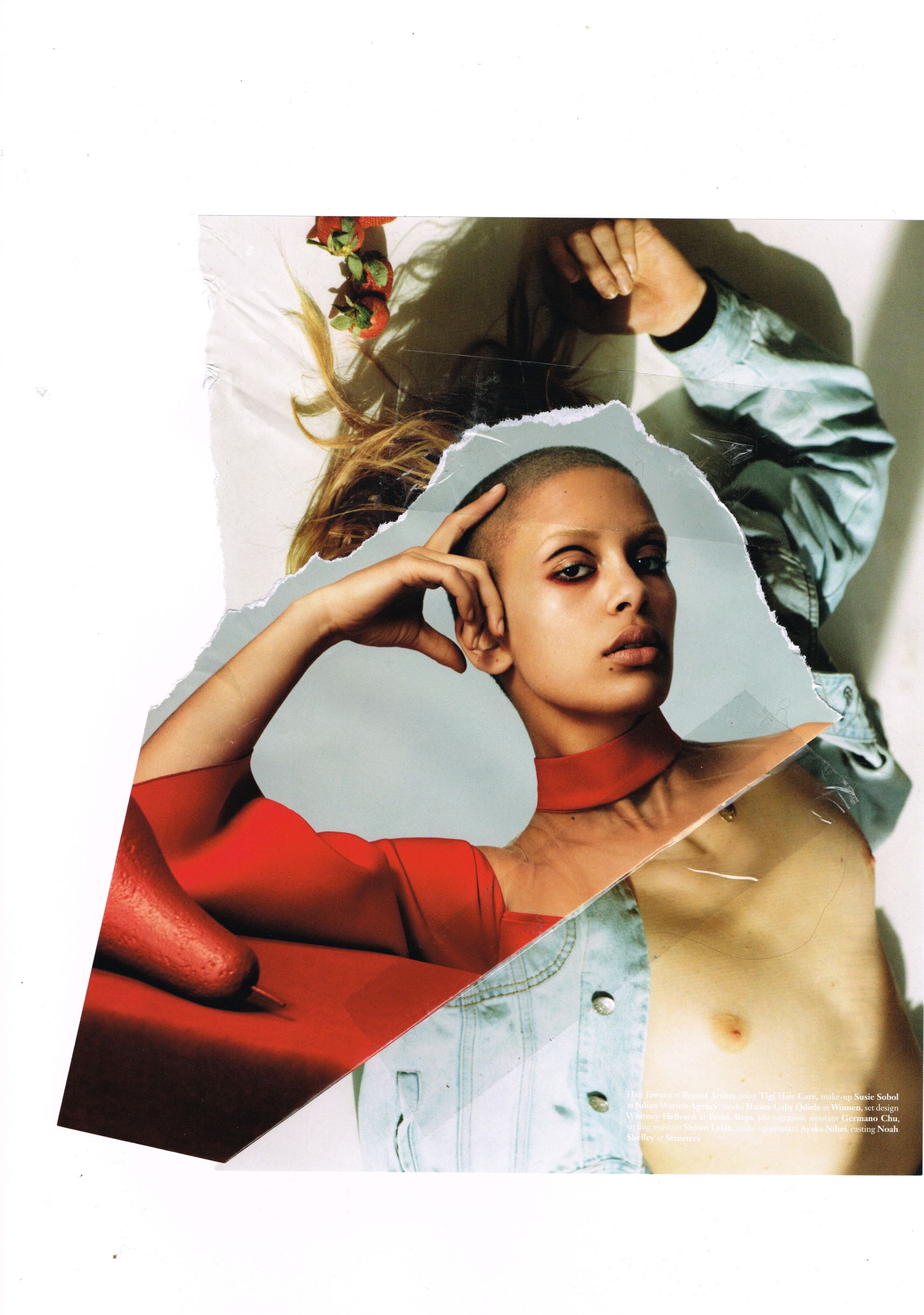
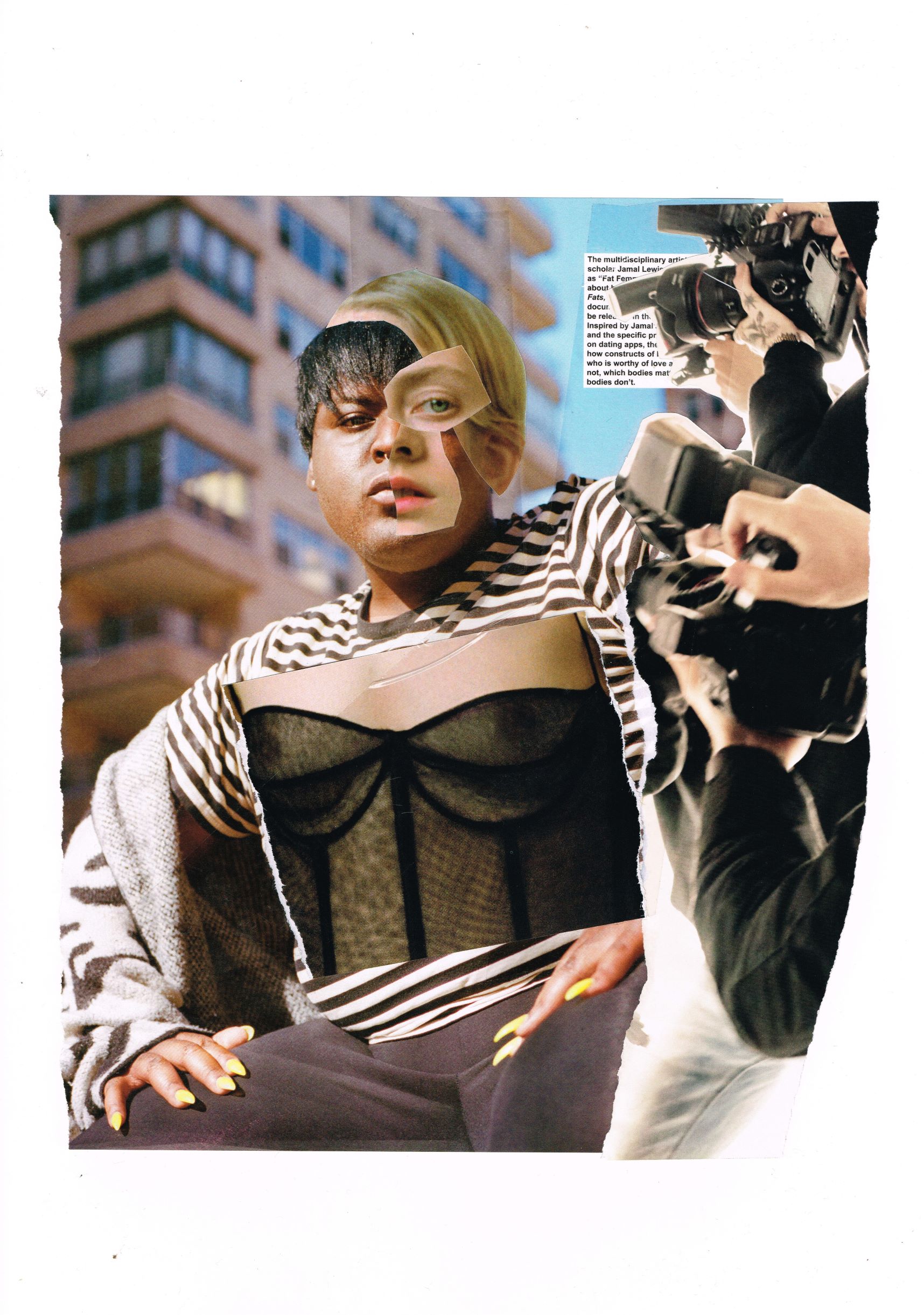
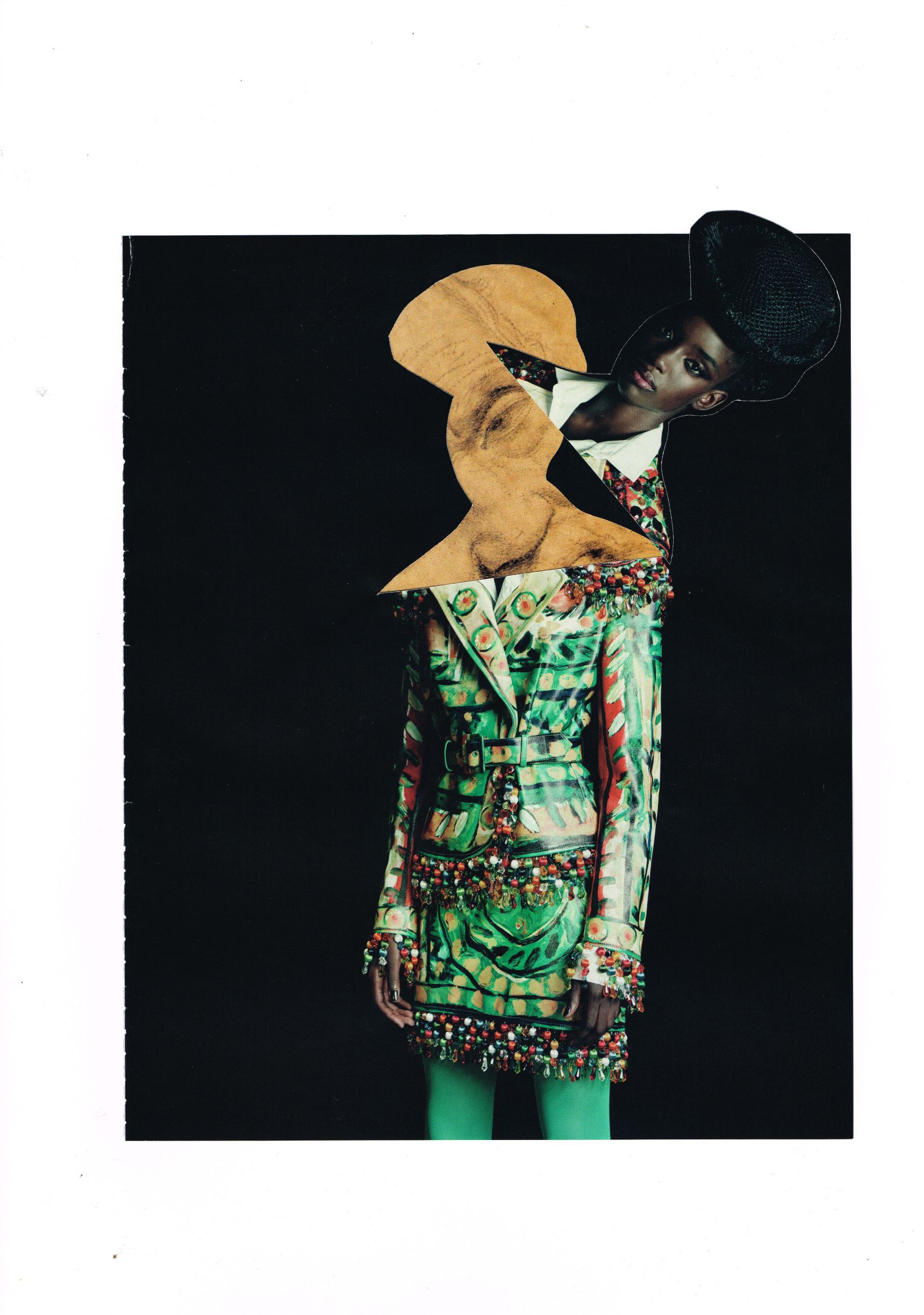
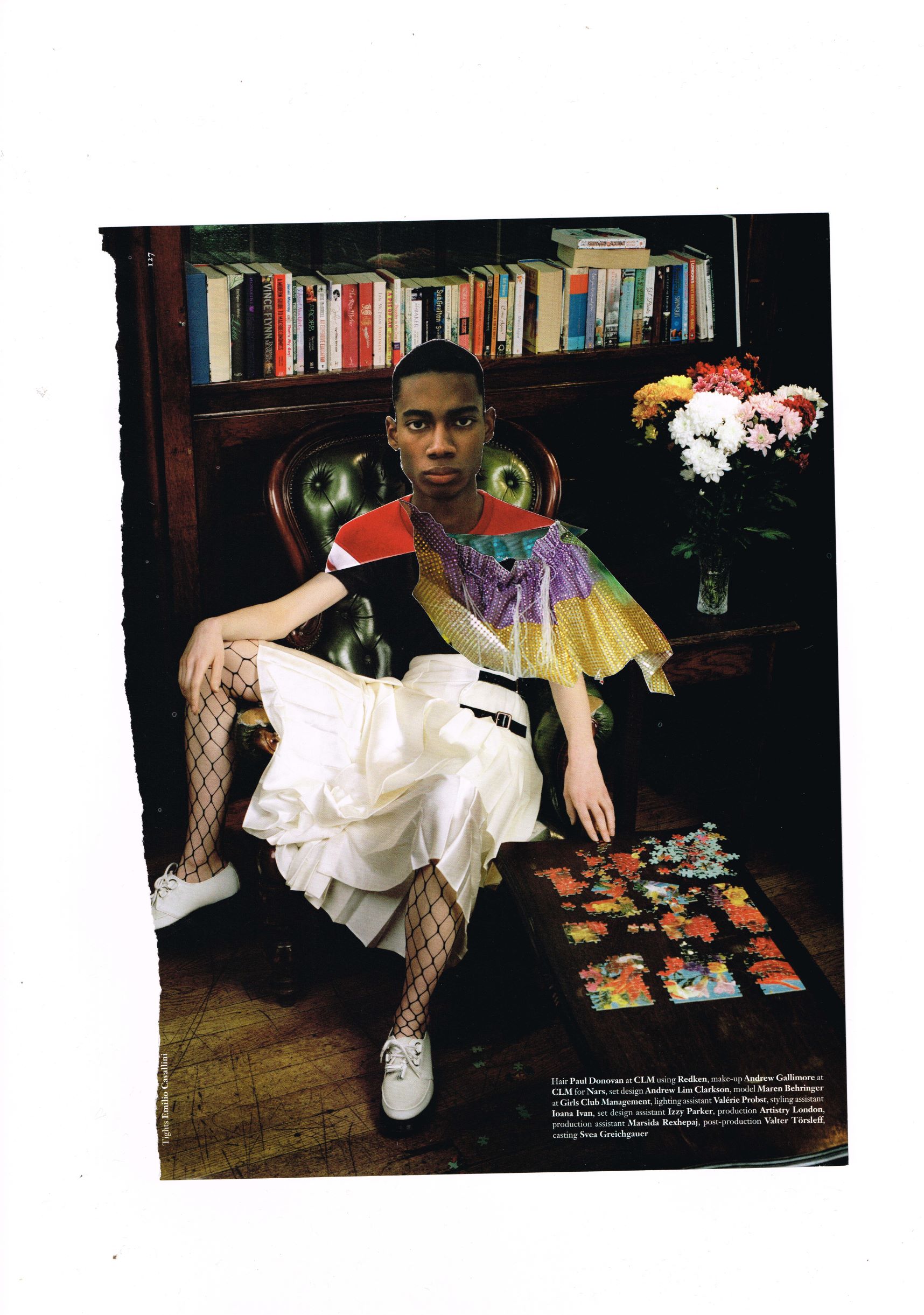
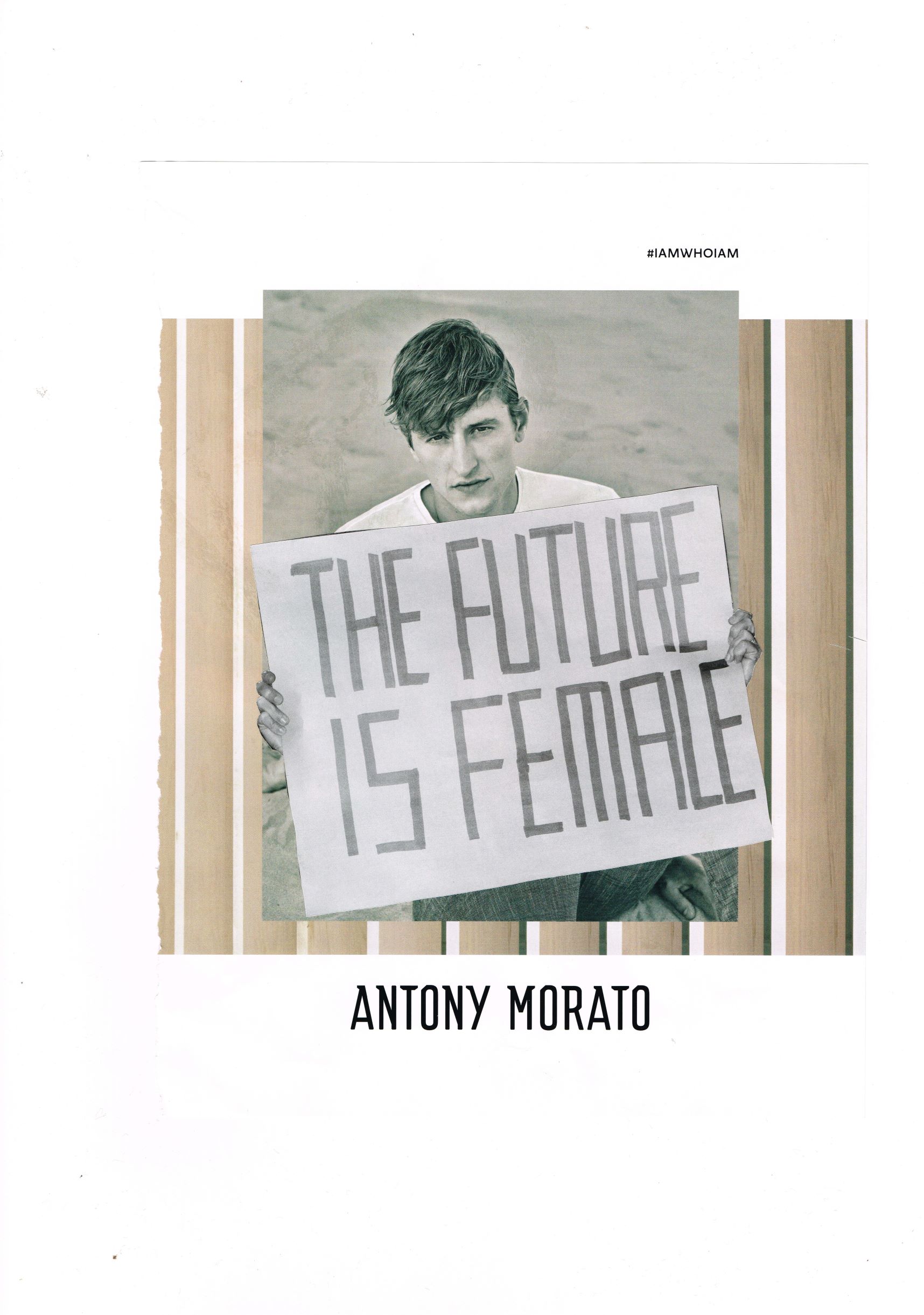
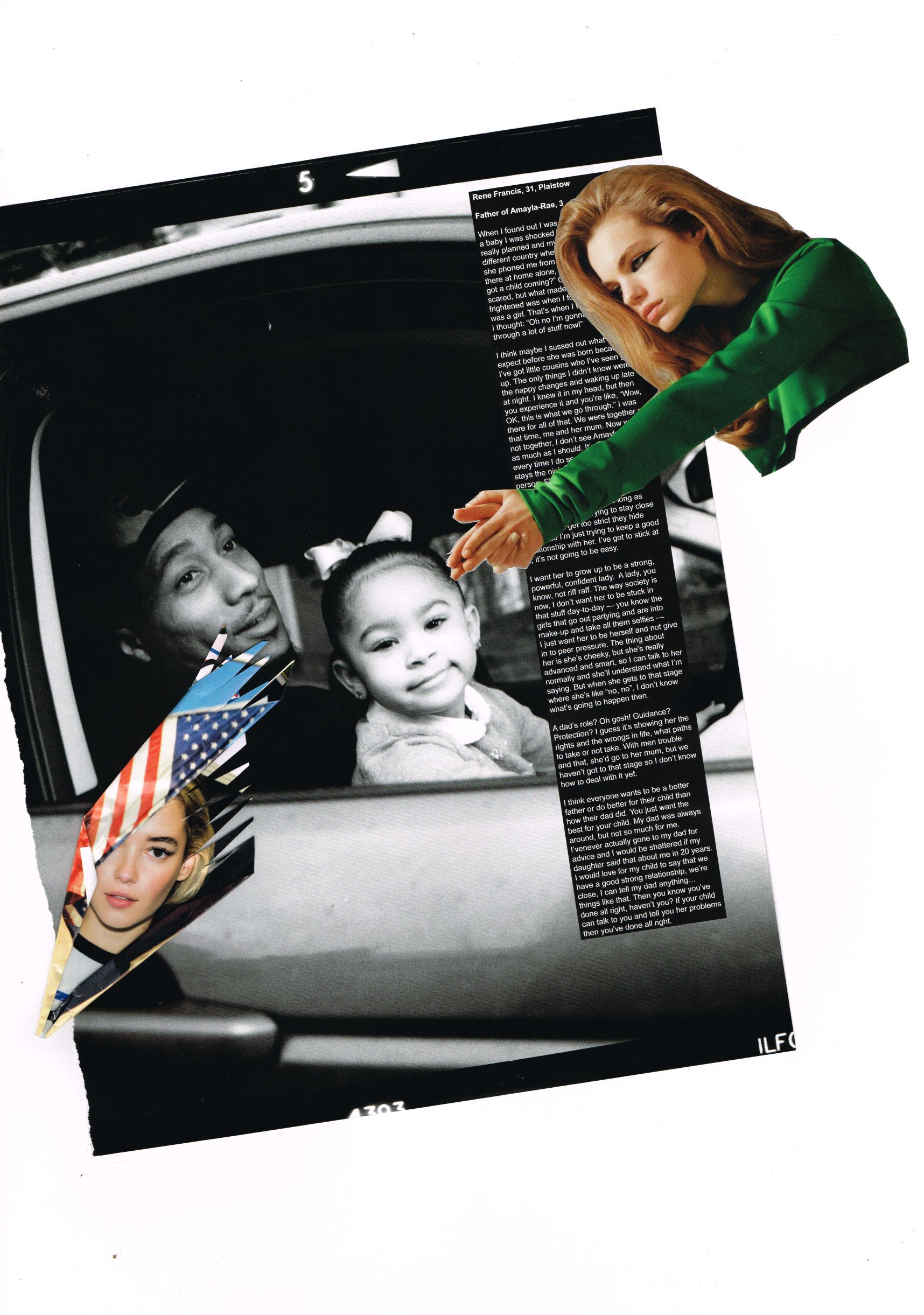
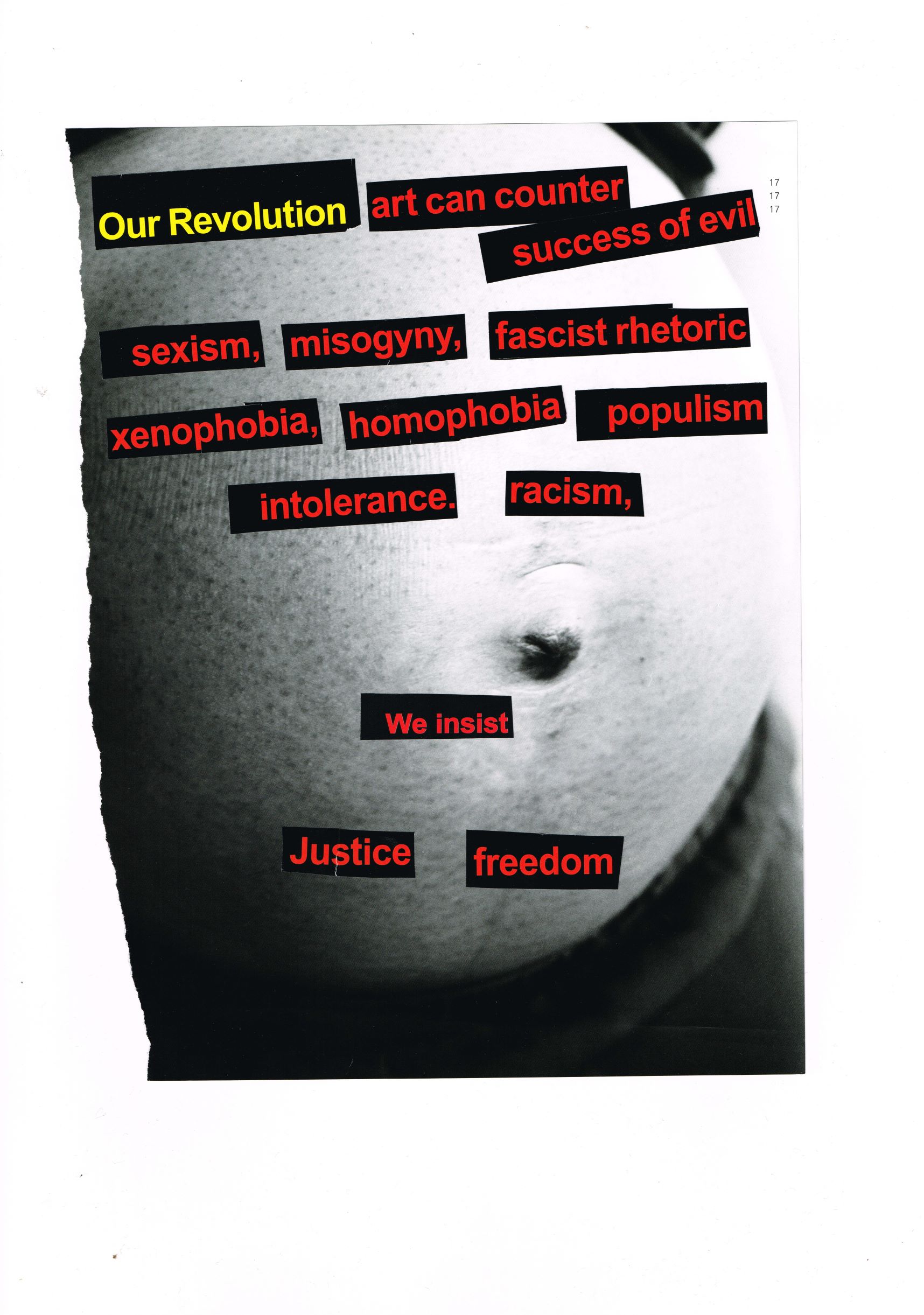
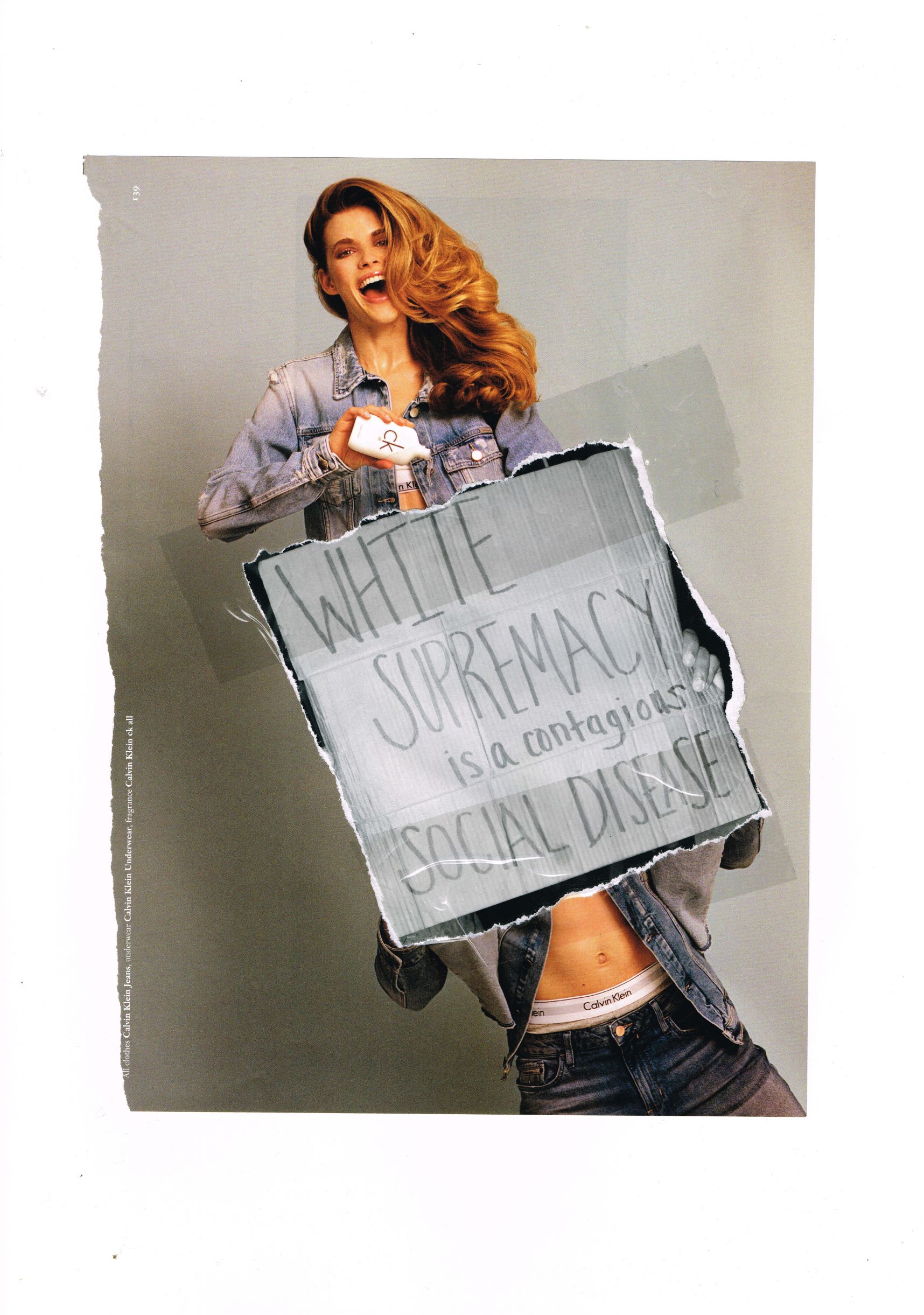
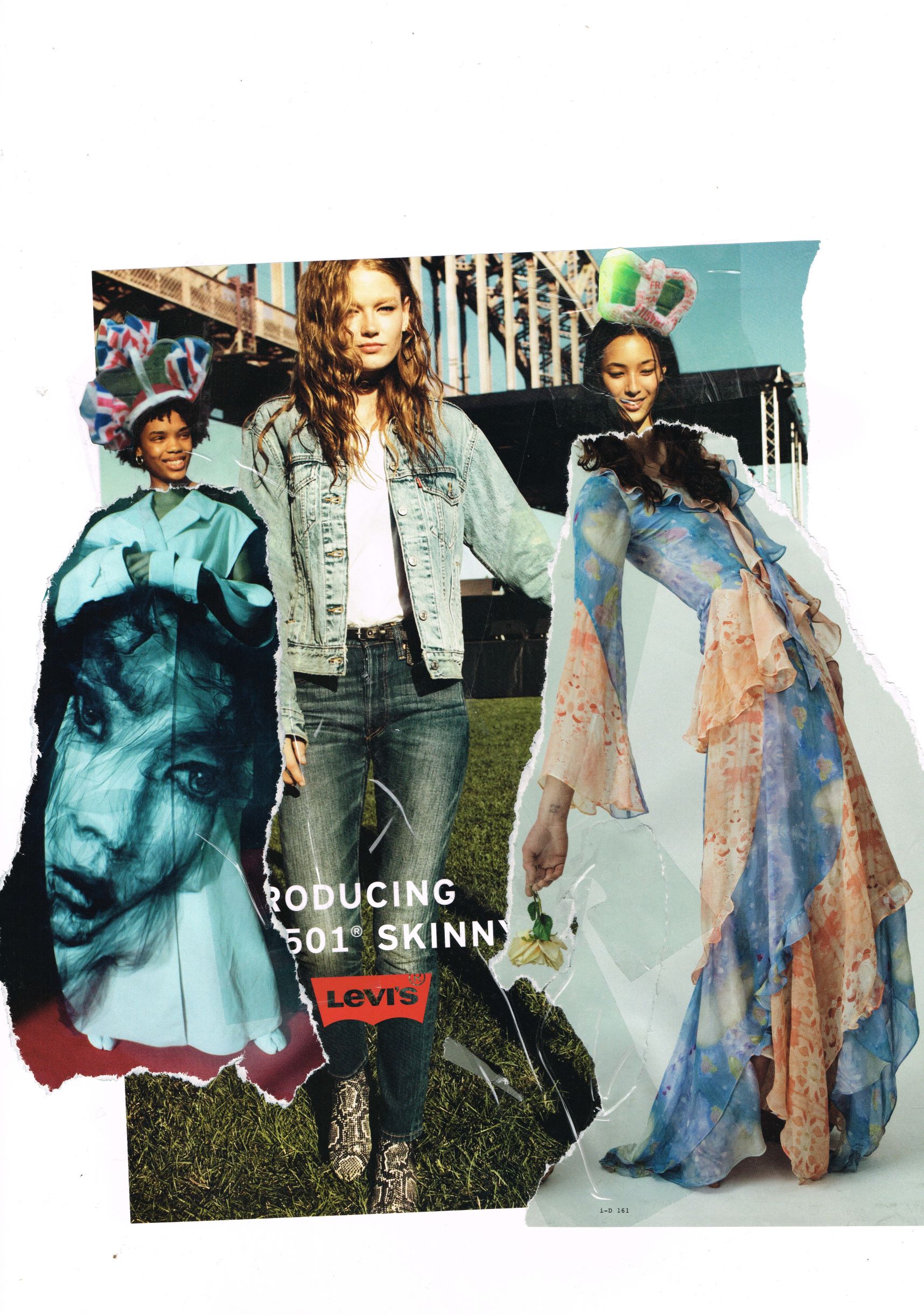

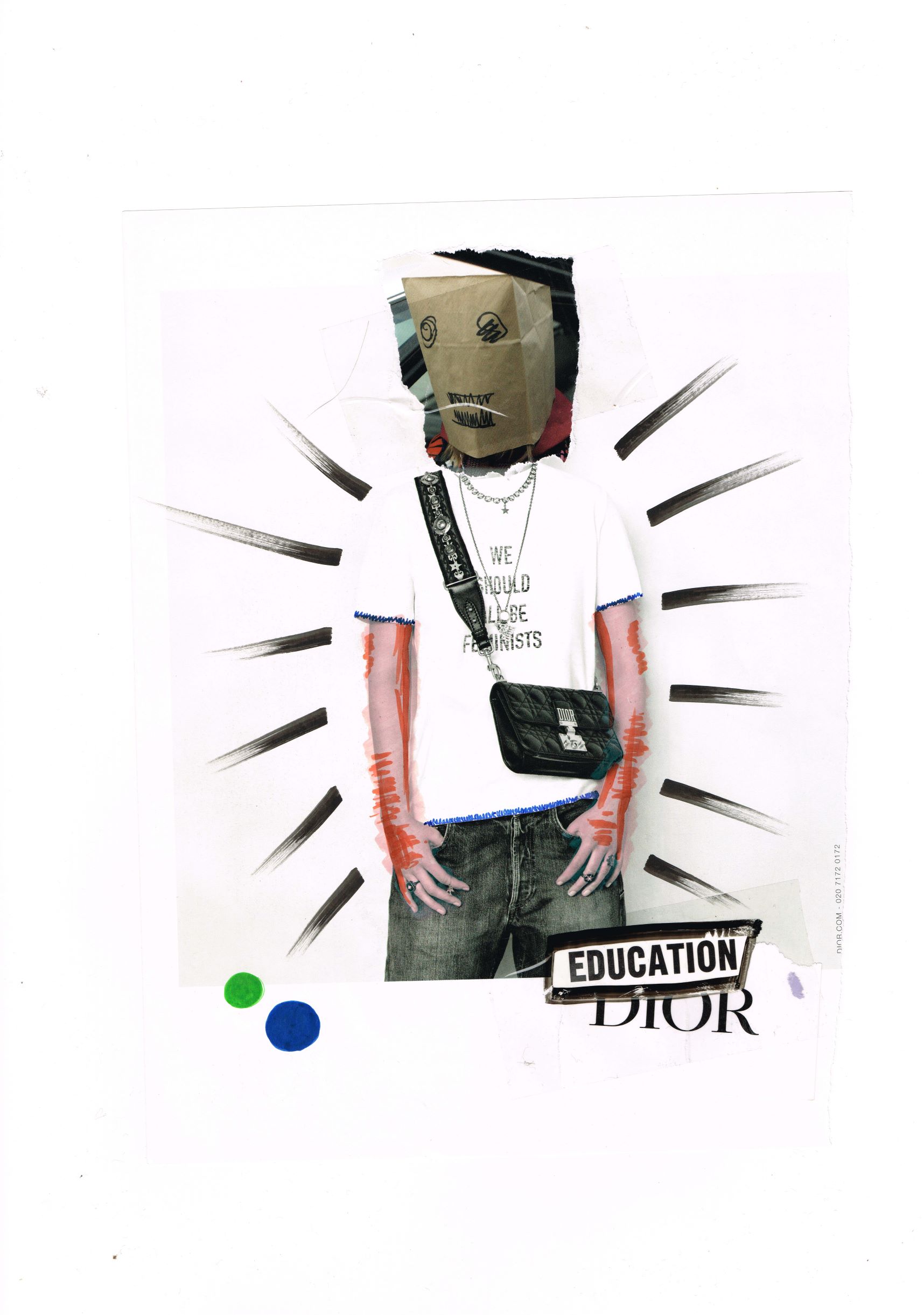
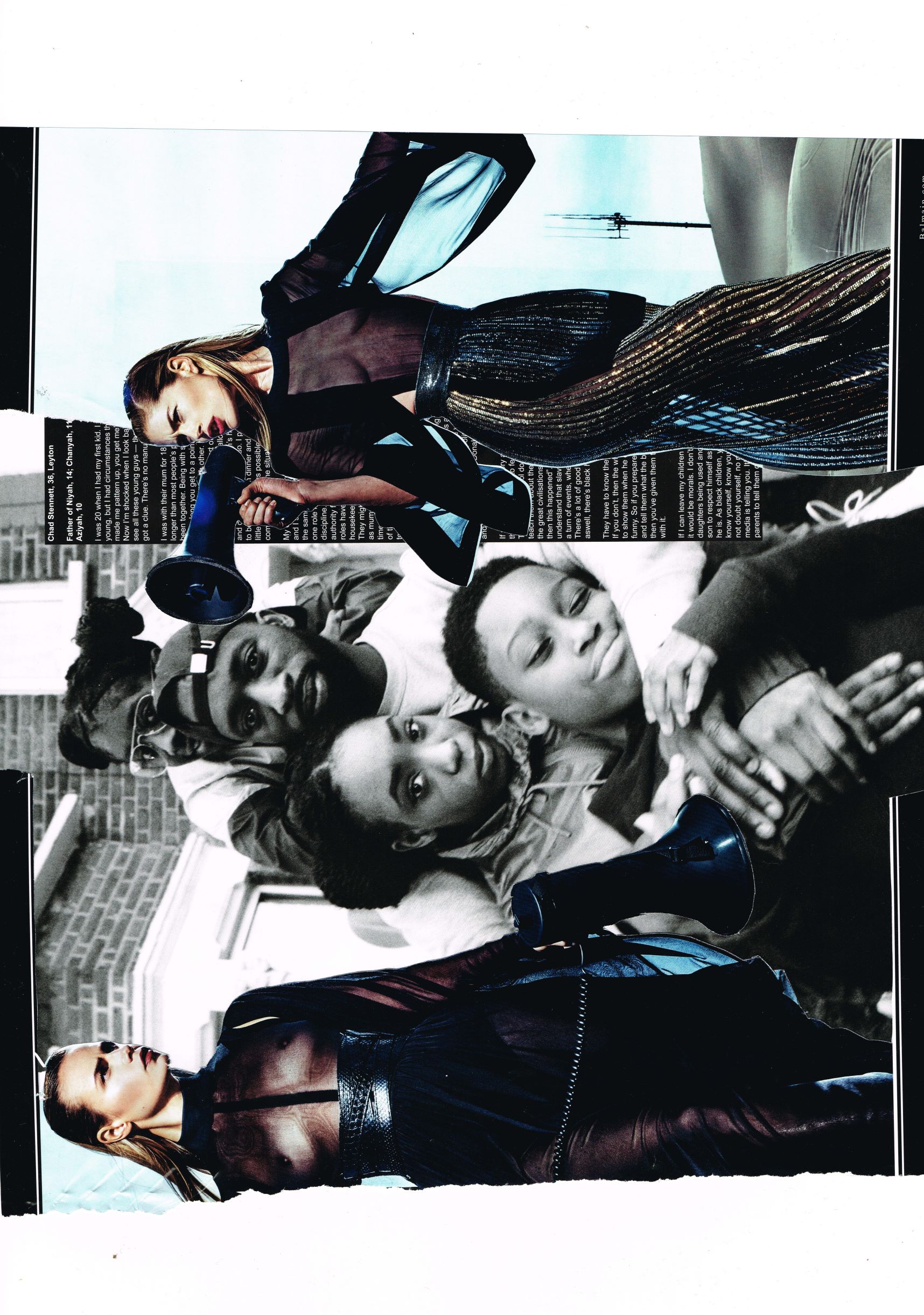
- "The Caribean is the home of hybridity".
- 1957: "The hope and dream of long term black and white assimilatzion".
- Frantz Fanon - White masksmention / reference.
- "The multicurtural experience: who is we/us?"
- 1968: The beginning of the psychedelic era: new forms of both contemplating and expressing of the oppressed.
- "It is a crisis of authority not race, race is the framework through which it is experienced."
- "Profound alienation from the country one lives in, evokes the deepest crisis of the identity."
- Realizing of the complex features of being black that can't be traded away, make that dream of magical assimilation disappear on both sides, "we are not going to stay under the terms of becoming just like you".
- Admitting his own struggle into grasping the complex structure of feminism and his own contribution to it, and the change of perception that came along with it.
- Because of media portrayal of astablished systems as a victory for common sense and every uprising / form of critique to it as violence, authorotarian governments applying any and all forms of 'law and order' have been able to grow politically strong, serving as a tool of an intervention of an argument.
BBC Film: The Stuart Hall Project (2013)
Notes:
More theory that I'm looking to be starting on as soon as I can..!
Thought:
It almost seems as if there is a cohesive relationship between
1. Feelings of not belonging,
2. Negative assertions with (own) skintone
3. Feeling oppressed/powerless and wanting to take back control and therefore join 'the powerful team', the opressor, even it means turning a blind eye to injustice towards people of own ethnic background.
This does not only apply to extreme, radicalised cases, it can be very subtle and seemingly innocent but that's only where the journey of ignorance and sailing the world with a broken compass starts.
Football culture, it's racist tendencies and black fans trying to fit in within that culture.
Latino Trump supporters.
(Extreme example)
Stephen (1783 - May 7, 1859) was Calvin Candie's starkly loyal house slave and close 'friend'. He is the secondary antagonist, later true main antagonist of Django Unchained. Being a senior house slave more respected than the rest, Stephen personally views himself second only to the white man with all his fellow black people beneath him.
The concept of a modern day house slave:
Gacheru - The House Nigger In Black American Literature
By the use of intimate talks with friends and relatives I want to zoom in on personal stories of how racism has effected the self image and behaviour of my fellow black people.
Decolonial Listening - Wetende dat ik ben opgegroeid in een land en systeem wat academisch, politiek en sociaal wordt genavigeerd vanuit een gedachtegoed gebaseerd op 400 jaar imperialisme én het feit dat ik mijn artistieke geest de afgelopen 4 jaar vanuit de Willem de Kooning Academie (die heeft bewezen alles behalve decolonial te zijn, ) geprobeerd heb te verleggen, vind ik het des te belangrijker vanuit dit gedachtegoed te opereren tijdens deze periode.